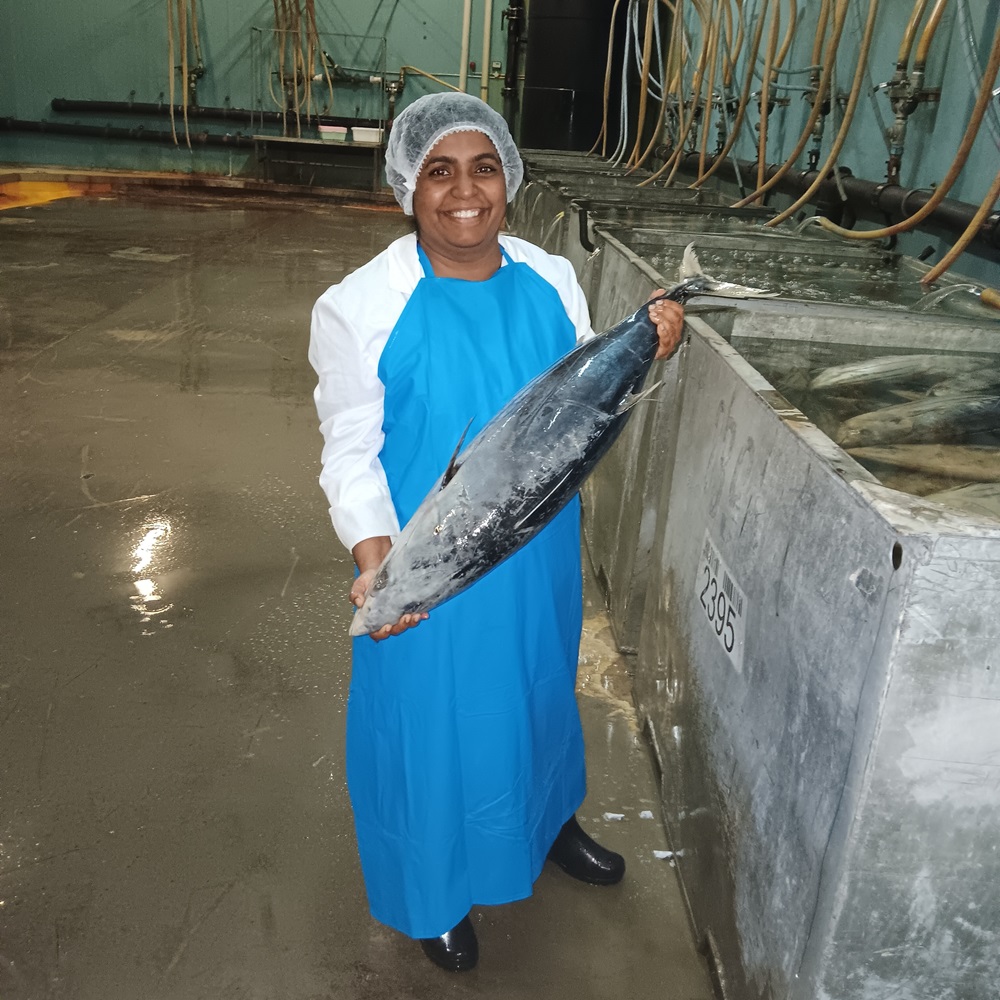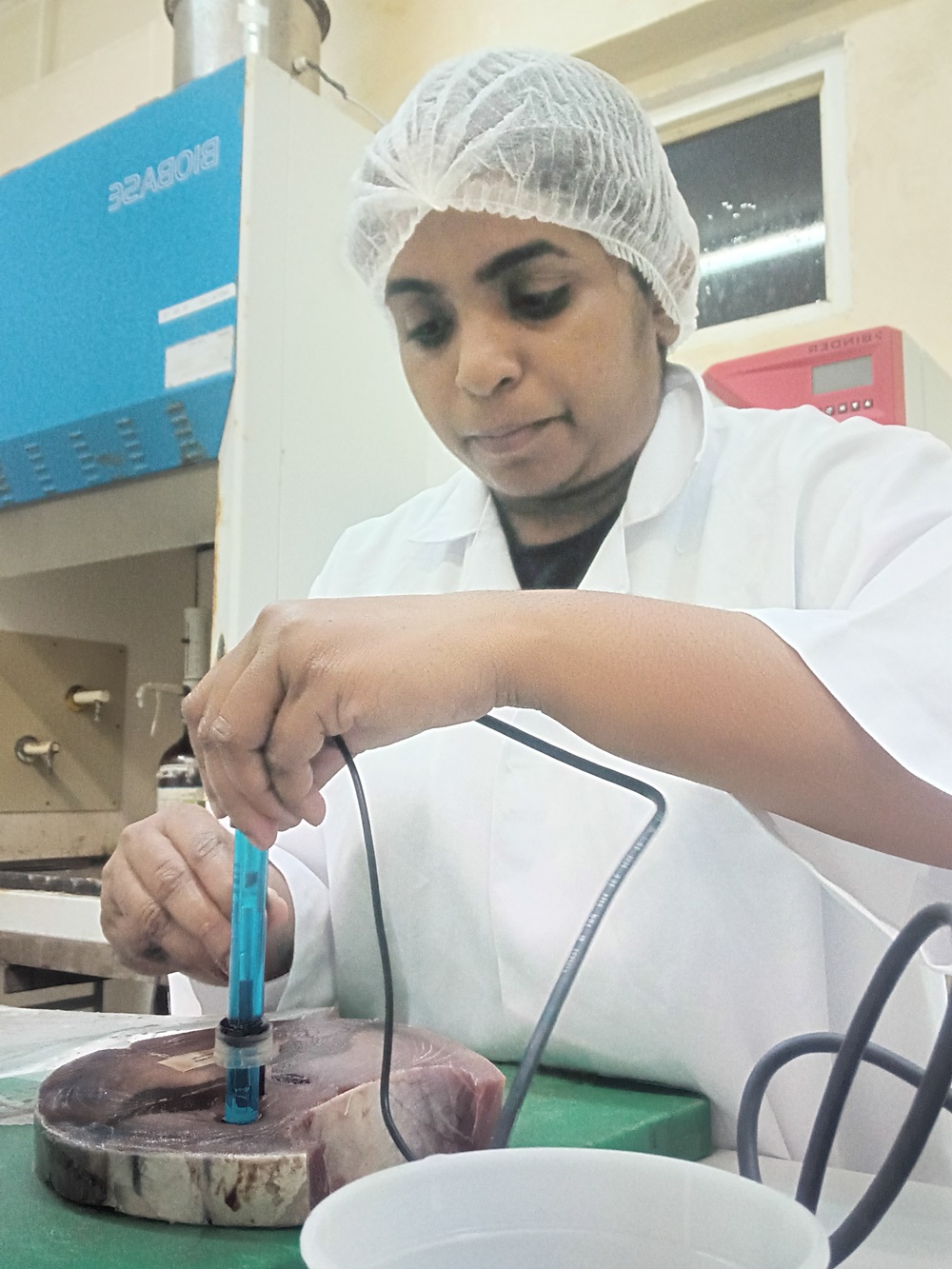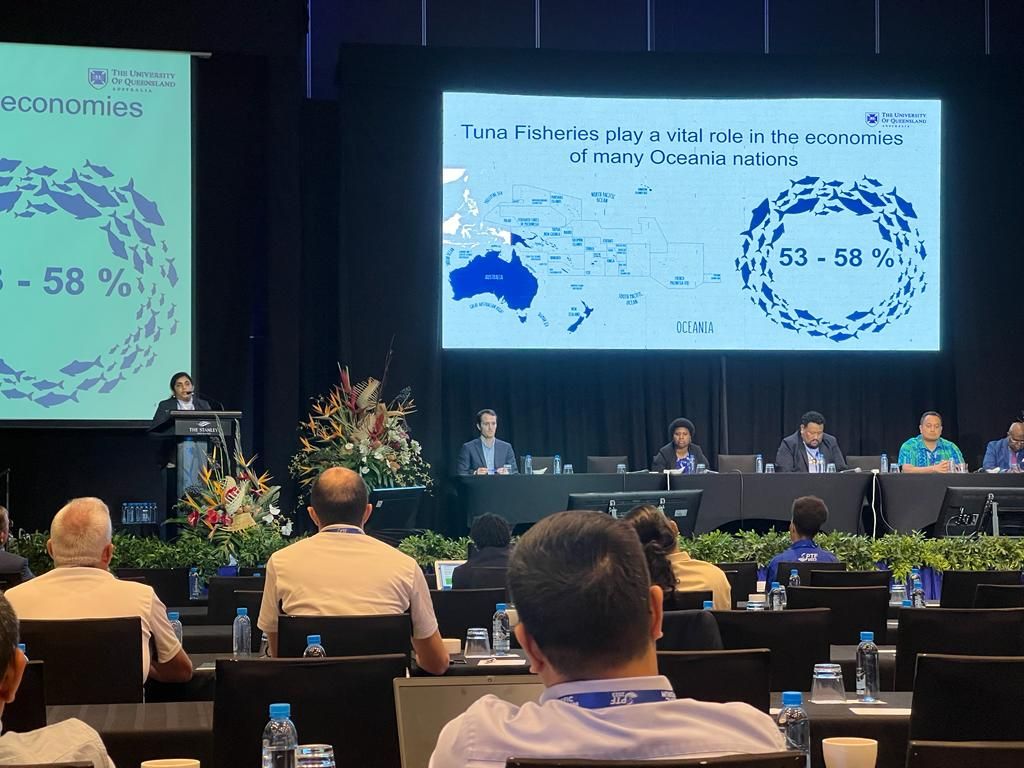
University of Queensland PhD candidate Soni Peter’s passion for plants, nature, and the ocean started in her childhood and has only grown the more she becomes entrenched in the industry.
Couple that with a family tradition of fishermen on her husband’s side, and Ms Peter’s connection to the seafood industry and coastal communities is profound.
“I am deeply passionate about the seafood industry, recognising its crucial role in supporting coastal communities and feeding a growing population,” Ms Peter said.
“This passion, coupled with a commitment to addressing global food loss and waste challenges, drives my research endeavours.
“My ultimate motivation is to contribute towards achieving UN Sustainable Development Goals, specifically targeting the ‘Zero Hunger’, ‘Responsible Consumption and Production’, and ‘Life Below Water’ goals.
“The aim is to create a world free from hunger, with responsible seafood practices and thriving oceans.”
Ms Peter’s PhD project is focusing on addressing the food waste problem in the seafood industry, particularly focusing on what contributes to the issue of mushy tuna syndrome (MTS).
As the name suggests, MTS is a condition that leads to soft and mushy tuna flesh, impeding flesh quality and leading to the wastage of good fish in the canning industry.
“It was during my work at the tuna cannery that I came across the problem of MTS in skipjack tuna,” Ms Peter said.
“Knowing the problem existed in other tuna canneries, causing huge loss and waste, I decided to pursue this topic for my PhD project.”
As part of the project, Ms Peter conducted a global survey of the tuna industry, which further proved the prevalence and occurrence of MTS in skipjack tuna.
“Our tuna industry survey found both a high prevalence – 97 per cent of the respondents noting they have had MTS in their skipjack tuna,” Ms Peter said.
“And business costs ranging from less than 1000 USD to over 1 million USD around the world, due to rejections and downgrading, lower yield, low productivity, and customer complaints.”
The survey highlighted the need to identify improvement strategies for fishers and processors to minimise loss and maximise resource efficiency.
“We now need to develop forecast tools that will benefit the fishers and processors, allowing them to adjust harvest strategies, fishing practices, and processing practices, identifying conditions that are likely to be associated with MTS,” Ms Peter said.
“Having a cost-effective, rapid, non-invasive technique to identify fish that have a high probability of displaying MTS would also be useful.
“It would enable processors to divert such fish to an appropriate product line, reducing fish waste and increase economic efficiency and fishery sustainability.

In the meantime, Ms Peter’s research will continue to explore the biological, physical, and chemical factors associated with MTS to understand the biochemical basis of the condition.
“The aim is to quantify the occurrence of MTS, particularly under climate change conditions, based on environmental and fish body conditions, harvest, and handling methods,” Ms Peter said.
“With this information, we aim to develop forecast tools that will benefit the fishers and processors by allowing them to adjust harvest strategies and fishing and processing practices through the identification of conditions likely to be associated with MTS.”
Ms Peter said her previous experience working within the industry has provided invaluable insights into the operational challenges faced by fishers and processors.
“My passion lies in bridging research and industry experience and I’m enthusiastic about exploring ways to integrate this into my work where I aim to develop practical solutions for industry challenges,” she said.
“By facilitating collaboration between research and industry, you guarantee research work is practical, resulting in solutions that meet industry requirements.
“It accelerates the transformation of research findings into solutions that can be implemented, ultimately benefitting the environment, society, and economy.”

Ms Peter’s passion for improving and advocating for representation of women in the seafood industry has recently been recognised, having been awarded a bursary from Women in Seafood Australasia (WiSA) to participate in the National Seafood Industry Leadership Program.
She has also completed the Turn the Tide Entrepreneurship and Leadership Program, where she and five others created SheSea, a program that aims to share stories to empower women and help them achieve their leadership goals.
“I think it’s vitally important we continue to work towards creating opportunities for women to take on leadership roles in the seafood industry,” she said.
“A more diverse and inclusive workforce will ultimately lead to greater innovation and growth within the sector.”



